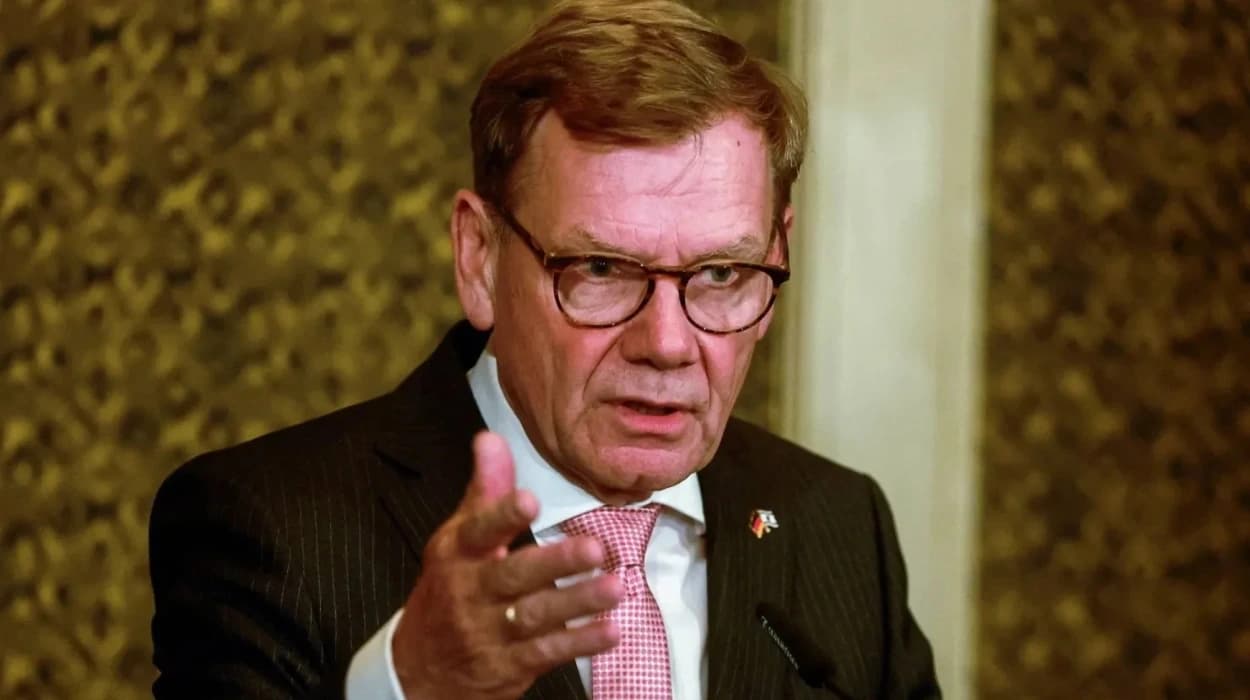Summary
- German Foreign Minister Wadephul visited the West Bank
August 1.
- Wadephul condemned recent Israeli settler violence in
Taybeh.
- Berlin has no immediate plan to recognize Palestinian
state.
- Emphasis on dialogue, stability over quick Palestinian
recognition.
- The visit highlights tensions amid ongoing Israel-Palestinian conflict.
His statements came after he was criticized
harshly by Israeli officials for his pre-trip remarks in which he threatened to
compel Germany to change its stance if Israel persisted in its unilateral
actions.
The far-right In response, Israeli Minister Itamar Ben-Gvir wrote on X,
"Germany returns to supporting Nazism 80 years after the Holocaust."
Wadephul cautioned before leaving for Tel Aviv that Israel was becoming more and
more isolated diplomatically as a result of the dire humanitarian situation in
Gaza and growing international pressure to recognize a Palestinian state.
In a public statement, he said,
“Israel is finding itself increasingly in the minority.”
As he noted,
"a growing number of European countries are ready to recognize a state of Palestine without previous negotiations, in view of the open threats of annexation by some in the Israeli government."
A non-binding resolution advocating for the
imposition of sovereignty over the occupied West Bank was supported by more
than 70 Israeli MPs on July 25, including those from the coalition led by
Israeli Prime Minister Benjamin Netanyahu.
Although Wadephul reiterated that "the
recognition of a Palestinian state should come at the end of the process,"
he also cautioned that "Germany will also be forced to react to unilateral
moves" and that "this process must begin now."
As he noted,
"a growing number of European countries are ready to recognize a state of Palestine without previous negotiations, in view of the open threats of annexation by some in the Israeli government."
A non-binding resolution advocating for the
imposition of sovereignty over the occupied West Bank was supported by more
than 70 Israeli MPs on July 25, including those from the coalition led by
Israeli Prime Minister Benjamin Netanyahu.
Although Wadephul reiterated that "the
recognition of a Palestinian state should come at the end of the process,"
he also cautioned that "Germany will also be forced to react to unilateral
moves" and that "this process must begin now."
In the occupied West Bank, he will meet with Prime Minister Netanyahu, President Isaac Herzog, and Israeli Foreign Minister Gideon Saar. He will also speak with Mahmoud Abbas, the president of the Palestinian Authority (PA).
What are Germany’s main considerations for recognizing Palestine now?
Germany prioritizes progress on urgent issues
first, including a ceasefire in Gaza, the release of Israeli hostages held by
Hamas, and the disarmament of the militant group.
Addressing the catastrophic humanitarian situation
in Gaza and preventing further steps by Israel toward annexing West Bank
territories are also central concerns.
Germany supports a negotiated peace process and
considers recognition of Palestine contingent on the initiation and progress of
direct negotiations between the parties.
